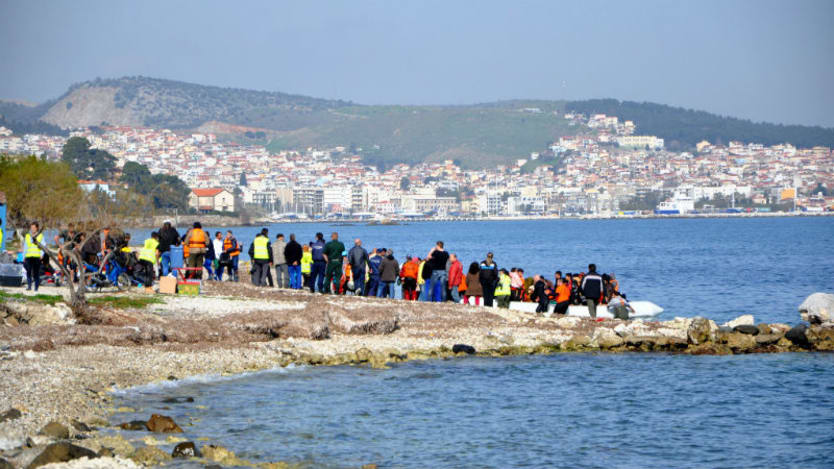
Few boats get through from Turkey to the Greek island of Lesbos nowadays. That part of the deal between Turkey and the European Union on migration is being implemented. It may not last, but for now, the migrant crisis in Greece has changed. The intense rush of hosting tens of thousands of refugees each week has switched to the indefinite reality of hosting around 53,000. This next phase is going to require a very different type of response.
These 53,000 migrants are made up of various nationalities. They stay in a variety of locations — on the islands, in the port of Piraeus, in the mainland and on the Macedonian border. They live in a variety of reception conditions, from detentions centers, to open centres, to makeshift shelters and warehouses. But they all have one thing in common: They want to be somewhere else.
For now, their prospects are not clear, and that uncertainty provides fertile ground for rumor and the false hopes that smugglers profit from. Tensions can boil over into angry clashes, which create the perception of crisis.
Yet 53,000 is a very manageable number. The EU is putting a generous amount of money on the table, with 100 million euros ($114 million) allocated to support humanitarian operations for the coming year. Greece has the infrastructure to cope. Aid agencies have mobilised and established a presence. This is a question of organization now, and of switching focus from transitory needs to ensuring dignity and protection for the long haul.
There are three actions that would make a big difference:
1. Make reception centers livable.
First, the reception centers need to transition away from the dangerous, crowded and unsanitary conditions people live in now. They need to be made suitable for long term residency, with special attention paid to the needs and protection of women and children. Choosing sites acceptable to both refugees and the Greek government will be a challenge. The scale of EU funding may fall if numbers in Greece remain relatively low, so the money needs to be used quickly to invest in reception centers that can last for a few years if need be. These must include playrooms, separate spaces and facilities for women, and opportunities for recreation and learning.
There is a real risk that this won't happen. We cannot let the funding be spent on emergency relief in support of people living in miserable, temporary reception centers. We need to fundamentally change the quality of those centres for longer term habitation. If this opportunity is missed, and the funds are absorbed by short term relief, there may never be another chance to provide the conditions that people need and deserve.
2. Support asylum claims.
Second, refugees need to be supported to make asylum claims under the Dublin Convention. Many of the people now staying in Greece are women and children following family members who made the journey last year. The Dublin Convention sets out criteria for where claims of such family members and dependents need to be heard. Applying these criteria should allow many women and children to break free from the limbo of staying in Greece, reuniting instead with their families.
3. Improve communication.
Third, there needs to be a concerted effort to improve information flows to refugees and migrants. These are people who have risked everything to get this far. The stress of uncertainty about what will happen next is unbearable. They need constant updates, regular contact with family, and opportunities to ask questions and be listened to. Part of this effort will require investment in translators. Too much of the current assistance is being provided through gestures, smiles and broken English. For a longer term relationship, the contacts need to be more meaningful.
None of these three actions meet all the immediate hopes and expectations of refugees and migrants staying in Greece. They are however all important to strengthening the response in Greece, following the EU-Turkey deal.
Join the Devex community and access more in-depth analysis, breaking news and business advice — and a host of other services — on international development, humanitarian aid and global health.
Search for articles
Most Read
- 1
- 2
- 3
- 4
- 5
